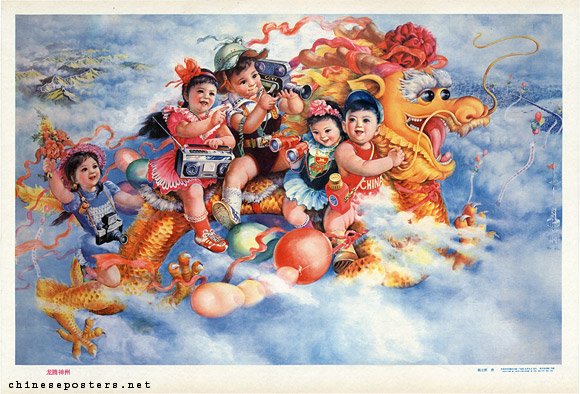Has there ever been a blander name for a holiday than “Spring Festival”? What the hell does it even mean? It’s held in the middle of winter. In North China we celebrate “spring” by huddling around in weather so frigid sheep start voluntarily walking up to chuan’r stands saying, “Seriously bro, let’s just do this.”
For thousands of years it was simply called the New Year, at least according to the lunar-solar calendar. So what changed?
Well, the calendar for one.
On January 1, 1912 Sun Yat-sen declared the founding of the Republic of China. One of the perks carried over from the old imperial era was that the founder of a new government gets to set the calendar. Sun chose the Gregorian calendar and, to avoid any confusion, declared January 1 “New Year’s Day.” This required a re-branding of the Lunar-Solar New Year as something else, which is when the term “Spring Festival” was born.
In 1928, Chiang Kai-shek decided to take it a step further linking the old and new New Year holidays. Chiang declared henceforth that Chinese New Year and Spring Festival would be celebrated as a single holiday each January 1. This was another one of Chiang’s brilliant “But-that’s-the-way-they-do-it-in-Japan” ideas.
In fact, Japan still does it, but in China this only lasted one year. Spring Festival 1929 was held according to the traditional Lunar-Solar Calendar.
When the PRC was established in 1949, Mao decided to keep the Gregorian calendar and with it the name “Spring Festival” to refer to the Lunar New Year. Over time however many of the more colorful customs associated with the holiday such as the burning of the Kitchen God or visiting a temple to pray for luck and fortune gave way to government campaigns against feudal superstition.
During the Lunar New Year 1967, the first “Spring Festival” of the Cultural Revolution era, workers were encouraged to turn in their train tickets and celebrate with overtime. Village loudspeakers blared messages telling farmers that nothing said “New Year spirit!” like digging irrigation ditches. For the next thirteen years, few dared to openly celebrate the Lunar New Year.
In 1979 an op-ed appeared in the People’s Daily asking “Where is Spring Festival?” The next year the fireworks returned.
In 1983, the first 春节晚会 Spring Festival Gala debuted on CCTV and had people immediately regretting the return of the holiday.
Stupid name or not, it is a special time. Over the next few days, families will gather to eat, drink and remind everyone of all the horrible things they’ve done to each other over the past year. Then the whole family goes outside to toss lighted firecrackers at loved ones.
I love it. Even if spring still feels like it’s months away.
More stories by this author here.
Jeremiah Jenne is a writer, educator, and historian based in Beijing since 2002. A version of this post was originally published on the blog Jottings from the Granite Studio. Jeremiah also leads public walks and programs at Beijing by Foot.
Image: Chineseposters.net


